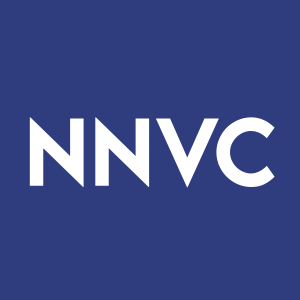A Single Drug Against Multiple Respiratory Virus Infections - COVID, RSV, Influenza, Bird Flu - Planning Next Phase of Clinical Trials, Says NanoViricides
Rhea-AI Summary
NanoViricides discusses its development of NV-387, a drug targeting multiple respiratory viruses including COVID, RSV, Influenza, and Bird Flu.
NV-387 has shown superior activity in animal models compared to approved drugs and has completed Phase I trials with no adverse events.
The company is planning Phase II trials for RSV and other indications.
NV-387's biomimicry reduces the likelihood of viral escape and offers a cost-effective approach to pandemic preparedness.
Regulatory compliance audits are ongoing as the Phase I trial site closes.
NanoViricides aims to advance NV-387 through the fastest regulatory paths for approval worldwide.
Positive
- NV-387 showed superior activity against RSV, Influenza, Coronaviruses, and orthoPoxviruses in animal models.
- Phase I trials of NV-387 completed with no adverse events reported.
- Planning for Phase II clinical trials of NV-387 for RSV, Influenza, and COVID underway.
Negative
- The company's path to drug approval is lengthy and requires substantial capital.
- No assurance that successful lab results will translate into successful clinical trials or products.
News Market Reaction
On the day this news was published, NNVC gained 4.05%, reflecting a moderate positive market reaction.
Data tracked by StockTitan Argus on the day of publication.
SHELTON, CT / ACCESSWIRE / July 11, 2024 / NanoViricides, Inc. (NYSE American:NNVC) (the "Company"), a clinical stage global leader in broad-spectrum antiviral nanomedicines, discusses its development program for NV-387, a single drug that has shown activity against many respiratory viral infections in animal models, enabling human clinical trials for a number of indications.
There are several viruses that continue to cause epidemics in humans; seasonal epidemics with Influenza, RSV, and SARS-CoV-2 (COVID) are occurring every year. The potential for severe Bird Flu pandemic, that may even be worse than the COVID-19 outbreak, is increasing every year as the virus spreads further into mammals and mutates more, according to experts.
Recently a fifth human case of H5Nx "Bird Flu" infection in the USA, acquired at work with infected dairy cattle, was found in Colorado (https://cdphe.colorado.gov/press-release/colorado-state-health-officials-identify-a-human-case-of-avian-flu). The person exhibited conjunctivitis symptoms, was given Tamiflu, and has recovered, according to the Colorado Department of Public Health and Environment (CDPHE). The risk to humans in general remains low, because this bird flu virus has not yet acquired the ability for human-to-human transmission, according to scientists. However, H5N1 bird flu is now widespread in wild birds, and has infected and spread in many mammals, including dairy cattle.
MPox infections are also becoming more common in the Western world over the last few years. MPox cases are rising in the USA again (https://www.nbcnewyork.com/news/national-international/mpox-cases-on-the-rise-in-connecticut-health-experts-say/5576427/).
A summer surge of COVID is occurring now with new FLiRT variants of the virus (https://www.forbes.com/sites/brucelee/2024/07/09/summer-2024-covid-19-surge-occurring-with-flirt-variants-taking-over/).
We are living in a world with many viruses that threaten our health. The current model of developing a drug against each virus separately is expensive and untenable with the myriad of viruses affecting humans that are gaining major foothold.
NV-387 turns this drug development model on its head, with a single drug that would be effective against many of these viruses. It simplifies preparedness for pandemics. It reduces cost of development to a single drug instance.
NV-387 is the only drug, to our knowledge, that has shown strong activity against all of the above viruses, namely, RSV, Influenza, Coronaviruses, and even orthoPoxviruses, in relevant animal models. In fact, in every case, the activity of NV-387 was superior to that of approved drugs as we have reported previously. NV-387 treatment also protected lungs from damage, which is very important for respiratory viral infections. Significantly, RSV infection in animals was completely cured by NV-387 treatment.
NV-387 is unlikely to be escaped by viruses, because of its biomimicry, presenting itself to the virus as a decoy of the host cell.
NV-387 has completed Phase I clinical trials with no reported adverse events, indicating excellent safety. Closing of the clinical trial site - hospital site itself - is in progress, with different audits taking place to ensure regulatory compliance. Statistical data analysis is expected to begin thereafter. We are eagerly awaiting further information and will provide updates as it becomes available.
We have started planning Phase II clinical studies of NV-387 as a treatment for RSV and other indications including Influenza and COVID, as the Phase I clinical trial comes to a close. We plan on taking the drug NV-387 forward on the fastest regulatory path feasible towards regulatory approvals in different countries and jurisdictions including the USA.
NanoViricides, Inc. (the "Company") (www.nanoviricides.com) is a development stage company that is creating special purpose nanomaterials for antiviral therapy. The Company's novel nanoviricide® class of drug candidates are designed to specifically attack enveloped virus particles and to dismantle them. Our lead drug candidate is NV-387 for the treatment of RSV, COVID-19, Long COVID, Influenza, and other respiratory viral infections. Our other advanced candidate is NV-HHV-1 for the treatment of Shingles (previously referred to as NV-HHV-101). The Company cannot project an exact date for filing an IND for any of its drugs because of dependence on a number of external collaborators and consultants. The Company is currently focused on advancing NV-387 into Phase I/II human clinical trials.
NV-CoV-2 is our nanoviricide drug candidate for COVID-19 (API NV-387) that does not encapsulate remdesivir. NV-CoV-2-R is our other drug candidate for COVID-19 that is made up of NV-387 with remdesivir encapsulated within its polymeric micelles. The Company believes that since remdesivir is already US FDA approved, our drug candidate encapsulating remdesivir is likely to be an approvable drug, if safety is comparable. Remdesivir is developed by Gilead. The Company has developed both of its own drug candidates NV-CoV-2 and NV-CoV-2-R independently.
The Company is also developing drugs against a number of viral diseases including oral and genital Herpes, viral diseases of the eye including EKC and herpes keratitis, H1N1 swine flu, H5N1 bird flu, seasonal Influenza, HIV, Hepatitis C, Rabies, Dengue fever, and Ebola virus, among others. NanoViricides' platform technology and programs are based on the TheraCour® nanomedicine technology of TheraCour, which TheraCour licenses from AllExcel. NanoViricides holds a worldwide exclusive perpetual license to this technology for several drugs with specific targeting mechanisms in perpetuity for the treatment of the following human viral diseases: Human Immunodeficiency Virus (HIV/AIDS), Hepatitis B Virus (HBV), Hepatitis C Virus (HCV), Rabies, Herpes Simplex Virus (HSV-1 and HSV-2), Varicella-Zoster Virus (VZV), Influenza and Asian Bird Flu Virus, Dengue viruses, Japanese Encephalitis virus, West Nile Virus, Ebola/Marburg viruses, and certain Coronaviruses. The Company intends to obtain a license for poxviruses and/or enteroviruses if the initial research is successful. The Company's technology is based on broad, exclusive, sub-licensable, field licenses to drugs developed in these areas from TheraCour Pharma, Inc. The Company's business model is based on licensing technology from TheraCour Pharma Inc. for specific application verticals of specific viruses, as established at its foundation in 2005.
As is customary, the Company must state the risk factor that the path to typical drug development of any pharmaceutical product is extremely lengthy and requires substantial capital. As with any drug development efforts by any company, there can be no assurance at this time that any of the Company's pharmaceutical candidates would show sufficient effectiveness and safety for human clinical development. Further, there can be no assurance at this time that successful results against coronavirus in our lab will lead to successful clinical trials or a successful pharmaceutical product.
This press release contains forward-looking statements that reflect the Company's current expectation regarding future events. Actual events could differ materially and substantially from those projected herein and depend on a number of factors. Certain statements in this release, and other written or oral statements made by NanoViricides, Inc. are "forward-looking statements" within the meaning of Section 27A of the Securities Act of 1933 and Section 21E of the Securities Exchange Act of 1934. You should not place undue reliance on forward-looking statements since they involve known and unknown risks, uncertainties and other factors which are, in some cases, beyond the Company's control and which could, and likely will, materially affect actual results, levels of activity, performance or achievements. The Company assumes no obligation to publicly update or revise these forward-looking statements for any reason, or to update the reasons actual results could differ materially from those anticipated in these forward-looking statements, even if new information becomes available in the future. Important factors that could cause actual results to differ materially from the company's expectations include, but are not limited to, those factors that are disclosed under the heading "Risk Factors" and elsewhere in documents filed by the company from time to time with the United States Securities and Exchange Commission and other regulatory authorities. Although it is not possible to predict or identify all such factors, they may include the following: demonstration and proof of principle in preclinical trials that a nanoviricide is safe and effective; successful development of our product candidates; our ability to seek and obtain regulatory approvals, including with respect to the indications we are seeking; the successful commercialization of our product candidates; and market acceptance of our products.
The phrases "safety", "effectiveness" and equivalent phrases as used in this press release refer to research findings including clinical trials as the customary research usage and do not indicate evaluation of safety or effectiveness by the US FDA.
FDA refers to US Food and Drug Administration. IND application refers to "Investigational New Drug" application. cGMP refers to current Good Manufacturing Practices. CMC refers to "Chemistry, Manufacture, and Controls". CHMP refers to the Committee for Medicinal Products for Human Use, which is the European Medicines Agency's (EMA) committee responsible for human medicines. API stands for "Active Pharmaceutical Ingredient".
Contact:
NanoViricides, Inc.
info@nanoviricides.com
Public Relations Contact:
MJ Clyburn
TraDigital IR
clyburn@tradigitalir.com
SOURCE: NanoViricides, Inc.
View the original press release on accesswire.com







